A new Bill being rushed through Victoria’s Parliament is set to dramatically expand the authority of the state premier and his health minister.
Under the 112-page Public Health and Wellbeing Pandemic Management Bill 2021, the Victorian Minister for Health Martin Foley will, going forward, sign off on all public health orders.
Currently, such orders are used to give governments power to impose public health restrictions such as lockdowns, mask mandates, shutting businesses, and domestic border closures—previously, this was under the purview of Chief Health Officer Brett Sutton.
The minister will also have the “broad power” to make pandemic orders where “reasonably necessary” to protect public health.
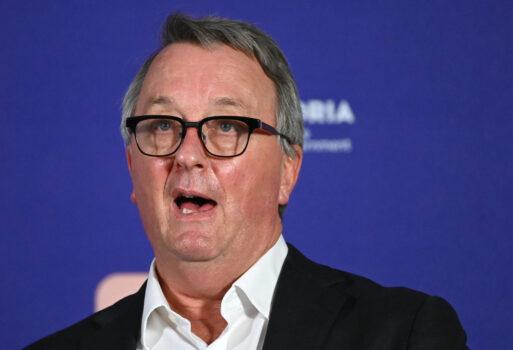
Meanwhile, Premier Dan Andrews will have the power to “declare a pandemic” and to extend such a declaration for “three months at a time” with no limit on the number of times it is extended—such a law in practice could see Victoria placed under lockdown for any period of time at the discretion of the premier, even when there are no cases.
Pandemic orders can also be targeted and “differentiated” between people according to their supposed risk to public health, namely their vaccination status.
In terms of accountability, the Bill will enhance safeguards around privacy and contact tracing information, require the chief health officer to publish reasons behind a public health order, and establish an Independent Pandemic Management Advisory Committee—whose members will be appointed by the government.
The proposed law will also introduce new penalties for breaches of pandemic-related health regulations, including AU$20,000 to $90,000 fines for individuals, and AU$100,000 to $455,000 for businesses—sailing past the record high penalties introduced by the Western Australian Labor Premier Mark McGowan earlier this month.
Further, penalties can be handed down by courts stopping businesses from profiting from activities that breach pandemic orders.
“Because of the short timeframe and the complexity involved in developing this Bill, consultation has not been as extensive as it would normally be,” the summary said.
The Victorian government is introducing the Pandemic Bill to supersede the “State of Emergency” powers granted by the Public Health and Wellbeing Act 2008; while the powers were only supposed to be extended a maximum of six months, it has over the course of the pandemic, been extended to cover 21 months.
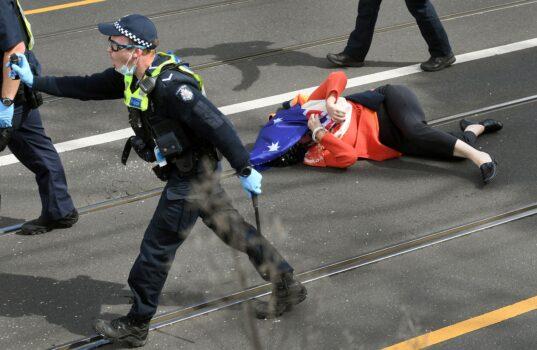
Storm of Criticism Erupts
In response, Matthew Guy, opposition leader of the Liberal Party, said he had never seen “such an attack on Australian democracy.”“This is an extraordinary, extreme legislation that comes despite the government committing last week that they‘d never lock us down again. Well, if they’ll never lock us down again, why do you need laws as extreme as this?” he told 3AW radio.
“They say there’s an independent committee—the independent committee is appointed by the premier. So, you have an independent committee appointed by the person it’s meant to somehow be a watchdog against,” Guy said.
“There’s no reference in this legislation at all to the Cabinet, therefore, there’s no Cabinet scrutiny. It’s all about one man, the premier; there’s no oversight by the Parliament as you'd expect,” he added.
“Don’t stand there and let our democracy be destroyed,” he said, calling on the public to be “vocal” about the issue to friends and online.
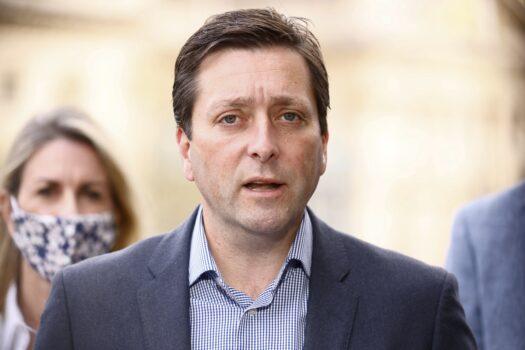
Martin Foley, the state’s health minister, dismissed criticism from the opposition, saying it was “hysterical” and that they were chasing “every conspiratorial rabbit down every tinfoil hat brigade rabbit burrow over the course of this pandemic.”
“The leader of the opposition stood about right here two weeks ago calling for precisely what the crossbenchers have delivered: a Westminster-style engagement process that has the executive accountable to the parliament, and through the parliament to the people of Victoria for the decisions that governments make,” he said, in comments obtained by the ABC.
“I’m pleased that the Greens have been able to make sure these new laws have more transparency and are fairer for all Victorians, especially those facing disadvantage,” she added, noting that the laws would offer greater protection to QR code data and greater scrutiny from an “independent panel that includes experts in human rights and health.”
David Limbrick, upper house MP of the Victorian Parliament, however, was critical.
Morgan Begg, director of the Legal Rights Program at the Institute of Public Affairs in Melbourne warned the law would “end democratic government in Victoria.”
“This Bill would appear to give the government, and the premier alone, permanent power to exercise tyrannical emergency powers,” he said in a press release issued to The Epoch Times.
“This must end now. We can never again go through what this government is doing to Victorians,” he added. “The government’s ability to declare emergencies and exercise emergency powers must be curtailed immediately.”
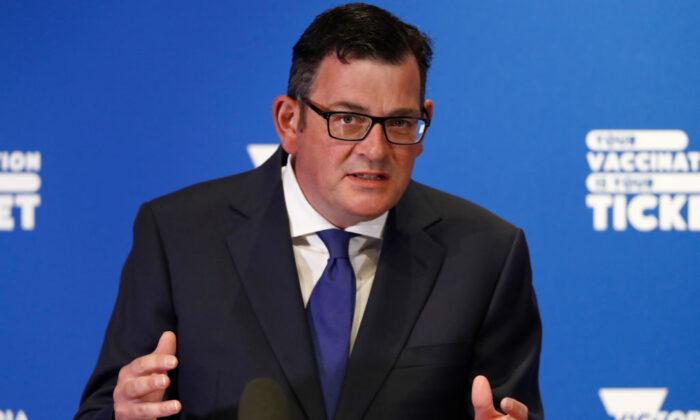

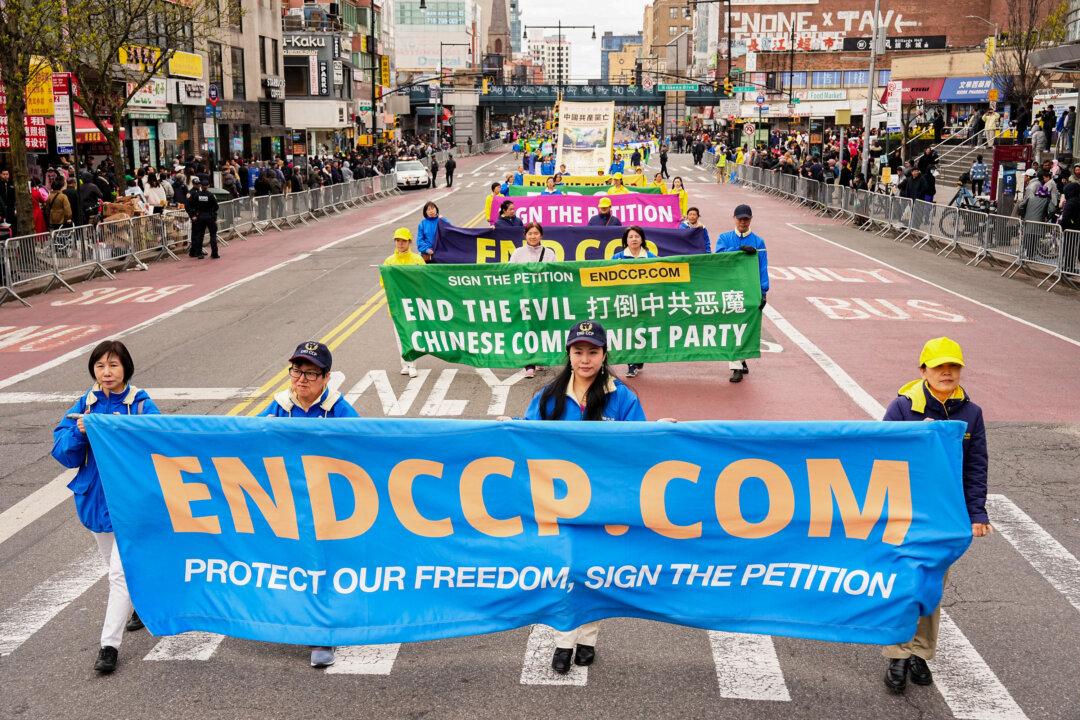
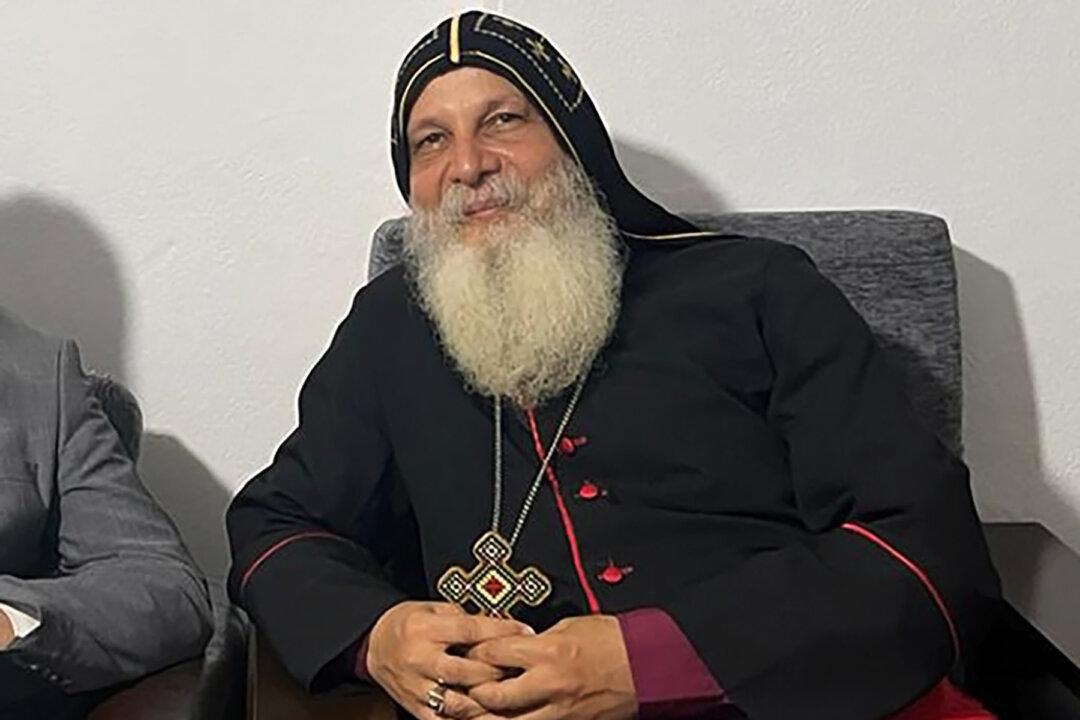


Friends Read Free